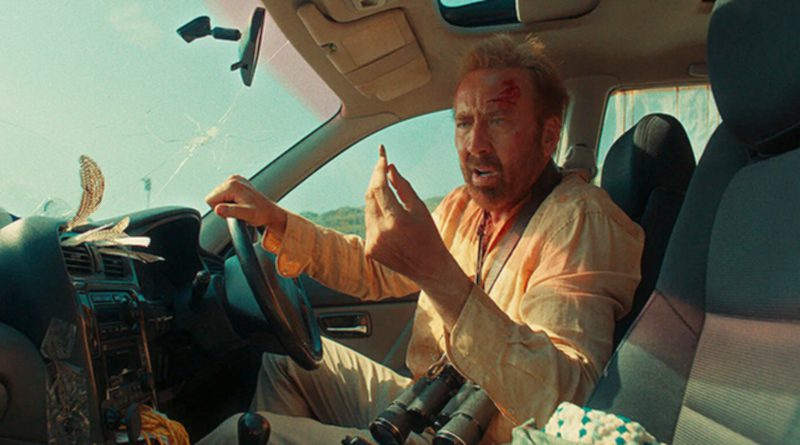The Surfer Review: Nicolas Cage Goes Unhinged in Lorcan Finnegan’s Wake in Fright-style Psychological Drama
Nicolas Cage descends into a Wake in Fright–like path of self-destruction and dealing with toxic masculinity in The Surfer? Now, that’s the type of role he’s born to play. The title in question refers to his nameless character, a middle-aged man returning to his hometown in the sunny (fictional) Luna Bay in Australia with his teenage son credited as The Kid, played by Finn Little. He already suffered from a rocky marriage after his wife fell for someone else.
But the eponymous Surfer remains optimistic about his life getting better if he manages to close the deal to buy back his old family house before Christmas. Not to mention reliving his good old days during his youth era for going surfing. It’s the ultimate taste of freedom that he wishes he could enjoy with his son. But right from the start, everything doesn’t go well as planned when the surfing locals led by Scally (a sinister-looking Julian McMahon) aren’t welcoming outsiders like him.
Scally constantly repeated “Don’t live here, don’t surf here” mantra, wanting him to leave the beach and don’t bother to come back. And yet, the Surfer remains oblivious to his threat as he insists on sticking around after taking his son back home. He parked his car near the beach and waited to get confirmation from the bank to secure enough funds to repurchase the property. While waiting and continuing to make calls, the same surfing locals are giving him a hard time. This includes everything from stealing his surfboard to vandalising his car, and not even calling the police (Justin Rosniak) can help solve his problem.
The police hardly take him seriously, and nobody seems to care about the trouble he’s been going through. Except for a kind photographer (Miranda Tapsell) and the old man Bum (Nic Cassim), where the latter is hanging around distributing leaflets about his lost dogs. The bulk of the movie is spent focusing on the Surfer’s downward spiral into madness, allowing Nicolas Cage’s trademark unhinged performance to be on full display. But I’m glad he doesn’t go overboard to play a demented role to the point of self-parody. He’s the reason that keeps me watching and investing in his plight, while props to Lorcan Finnegan and cinematographer Radek Ladczuk for capturing the sweltering heat of the sun-baked Western Australia location.
The visuals are on point that you can almost feel the heat and sweat from the bright, scorching sun that the Surfer is facing as days go by. Not to forget, the sheer humidity, dehydration and even hunger. The story tends to be repetitive after a while, almost like a rinse-and-repeat narrative approach to see how bad the Surfer’s situation is, where he is forced to endure day and night. Perhaps Finnegan is intended to make us feel what it’s like to be stuck in a limbo with someone like the Surfer suffering from endless humiliation, bullying and the whole waiting game about getting the property.
Frankly, there is so much an actor can do to sustain the movie’s 100-minute running time that I feel it could have used some trimmings. Apart from Cage’s scene-stealing lead performance, the movie equally benefits from Julian McMahon’s formidable cult leader-like Scally, who enjoys tormenting the Surfer like his favourite pastime.
The movie has something to say about xenophobia, machismo, determination and a desperate sense of belonging to be accepted within the tight-knit community seen from the Surfer’s perspective. These themes may have been intriguing, but I can’t help feeling they are all mostly executed in a surface-level manner. If it isn’t for Cage’s committed performance, the movie would have been a bust.





